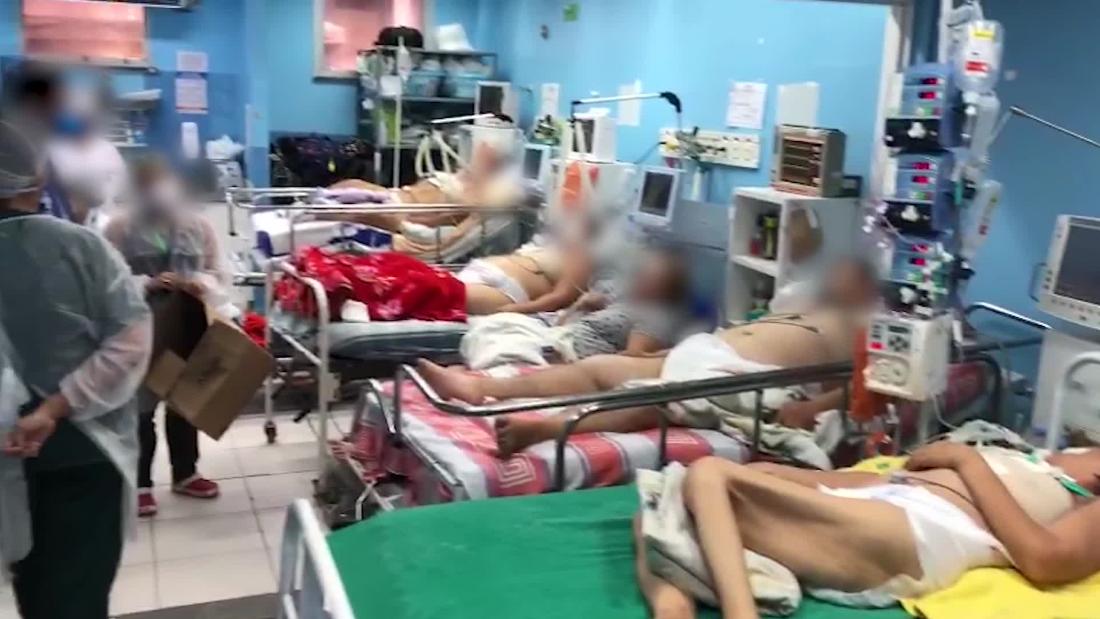
“Latin American countries will fight for vaccines and medical supplies, no matter where they come from,” said Parsifal D’Sola, founder and CEO of the Andres Bello Foundation, a think tank dedicated to Sino-Latin American relations. “So far, developed nations have bought more than 50% of the available vaccines, so Latin America is likely to reach China and Russia to fill the gap.”
Coronavac, made by the Chinese company Sinovac, is already part of the large-scale distribution in Brazil. Russia’s Sputnik V vaccines have been embraced by several countries, including Argentina and Bolivia. But broadly speaking, the regional administration of vaccines is messy and uneven, without a coordinated approach, and it remains to be seen how the pandemic could shape future diplomatic relations between South America and the rest of the world.
Here are their vaccination campaigns for now:
Argentine
In December, flag carrier Aerolineas Argentinas posted a special flight to Moscow to take the first doses, a sign of how close the partnership with Russia is in Buenos Aires.
Argentina has also secured orders from other manufacturers for a total of nearly 50 million doses, according to the database of vaccine pre-purchase agreements at Duke University.
All vaccines released so far have been from Russia.
Brazil
Compared to its neighbors, Brazil has strong vaccine manufacturing capabilities. However, experts say the country has lagged behind in the race to buy active ingredients to produce them.
Bolivia
While awaiting the first doses of COVAX allocated to Bolivia, Arce managed to deliver at least 20,000 doses of Russian vaccine, which arrived in Bolivia on January 28.
The acquisition signals closer relations with both Russia and Argentina, where President Fernandez is a close ally of Arce and his predecessor, Evo Morales.
Chile
Public data from Duke University shows that Chile pre-purchased vaccines from Western manufacturers AstraZeneca, Pfizer and Johnson & Johnson, but the largest order was placed for Coronavac in China. China is already Chile’s main economic partner.
Despite ordering more than 90 million doses of vaccine for a population of less than 20 million people, Chile’s vaccination program has not yet managed to raise steam. Less than 70,000 people have been vaccinated so far.
Colombia
Colombia is the largest country in South America that has not yet begun vaccinations.
President Ivan Duque responded to criticism, saying the country relies mainly on the COVAX mechanism and promised that vaccinations would begin on February 20th.
Colombia, the United States’ closest ally in the region, has not purchased vaccines directly from Russia, but recently announced a small acquisition of China-made Coronavac.
Ecuador
Last month, this Andean country began its vaccination program using the Pfizer / BioNTech vaccine. Like other nations in the region, it is looking forward to the COVAX mechanism starting to deliver doses.
Guyana and Suriname
None of them started vaccination – but the impact of the pandemic was minor, with less than 10,000 cases in each.
Both should receive doses through COVAX.
Paraguay
The only landlocked country in South America is a case study for vaccine diplomacy.
Paraguay has no diplomatic relations with Beijing and has recognized Taiwan – which is claimed by China – as a legitimate Republic of China.
Last year, a group of lawmakers presented a motion to the Senate to change recognition in favor of Beijing, hoping to receive more medical supplies to reduce the pandemic. The vote did not pass.
Paraguay has not yet received a single dose of vaccine, but expects more than 4 million doses through COVAX.
Peru
Like neighboring Colombia, Peru has not yet received a dose. Both countries are expected to be among the first to receive vaccines from COVAX, but Peru has also used China’s Sinopharm vaccine to increase its arsenal.
In total, Peru expects more than 50 million doses, in part due to vaccination studies it conducted last year to provide valuable data to producers.
Uruguay
One of the smallest countries in the region, Uruguay has already started vaccinations.
President Lacalle Pou lamented what he called “an impressive trade war” over vaccines.
Venezuela
On paper, Venezuela is the South American country least affected by the pandemic.
Maduro has announced that Venezuela will receive vaccines from its traditional allies, Russia and China, in October, but no vaccination campaign has been set up yet.
Maduro also hopes to receive the Cuban vaccine Soberana 01, which is still under development.
In January, Venezuela was blocked from joining COVAX due to non-payment, according to the Pan American Health Organization.
Correction: This story has been updated to correct the spelling of Cynthia Arnson’s last name.